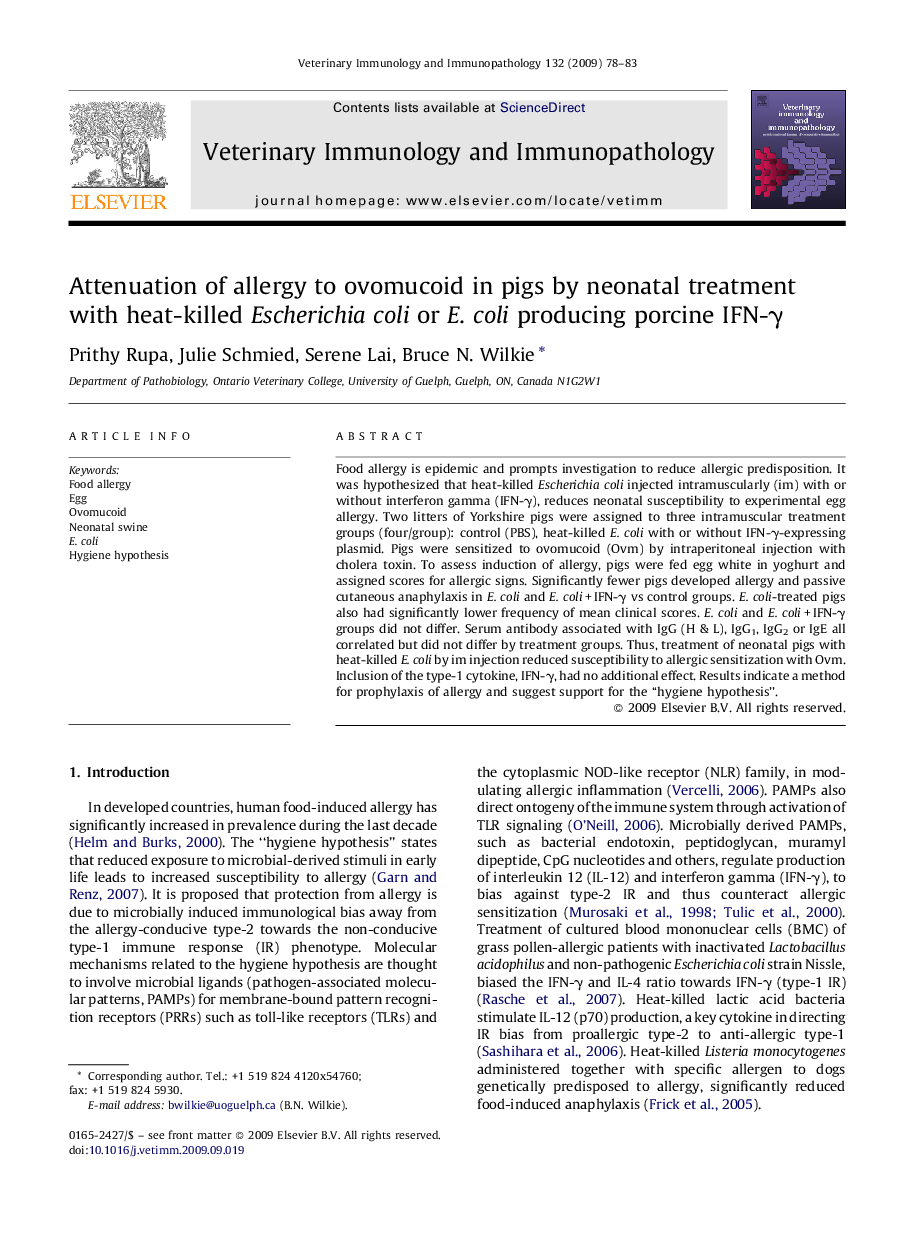| Article ID | Journal | Published Year | Pages | File Type |
|---|---|---|---|---|
| 2462595 | Veterinary Immunology and Immunopathology | 2009 | 6 Pages |
Food allergy is epidemic and prompts investigation to reduce allergic predisposition. It was hypothesized that heat-killed Escherichia coli injected intramuscularly (im) with or without interferon gamma (IFN-γ), reduces neonatal susceptibility to experimental egg allergy. Two litters of Yorkshire pigs were assigned to three intramuscular treatment groups (four/group): control (PBS), heat-killed E. coli with or without IFN-γ-expressing plasmid. Pigs were sensitized to ovomucoid (Ovm) by intraperitoneal injection with cholera toxin. To assess induction of allergy, pigs were fed egg white in yoghurt and assigned scores for allergic signs. Significantly fewer pigs developed allergy and passive cutaneous anaphylaxis in E. coli and E. coli + IFN-γ vs control groups. E. coli-treated pigs also had significantly lower frequency of mean clinical scores. E. coli and E. coli + IFN-γ groups did not differ. Serum antibody associated with IgG (H & L), IgG1, IgG2 or IgE all correlated but did not differ by treatment groups. Thus, treatment of neonatal pigs with heat-killed E. coli by im injection reduced susceptibility to allergic sensitization with Ovm. Inclusion of the type-1 cytokine, IFN-γ, had no additional effect. Results indicate a method for prophylaxis of allergy and suggest support for the “hygiene hypothesis”.
